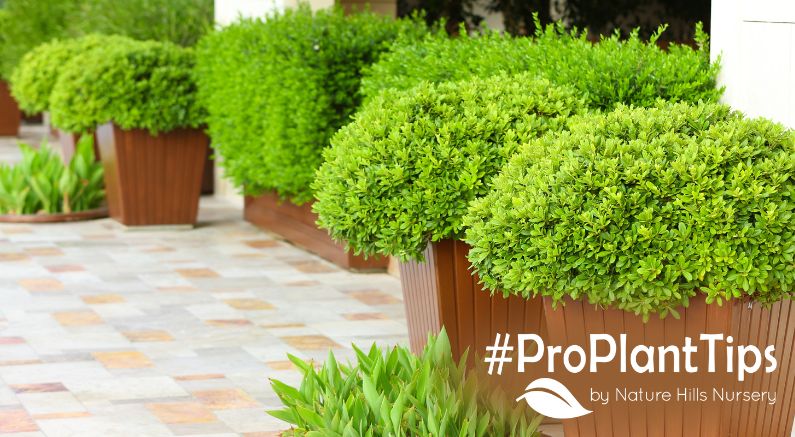Evergreen foundation shrubs are important. They stay green all year. This makes them special. They add beauty to your home. They also provide privacy. Let’s learn how to plant them.
What Are Evergreen Foundation Shrubs?
Evergreen shrubs keep their leaves. They do not lose them in winter. This is why they are called “evergreen”. Foundation shrubs are planted near buildings. They make buildings look nice. They also hide the building’s foundation.
Why Plant Evergreen Foundation Shrubs?
These shrubs have many benefits. They add color to your garden. They also offer shade. This helps keep your house cool. Shrubs can block wind too. This makes your garden more comfortable. Plus, they provide homes for birds. Birds love to live in shrubs.

Credit: naturehills.com
Choosing the Right Shrubs
Choosing the right shrub is important. Not all shrubs are the same. Some grow tall. Others stay short. Think about the space you have. Also, consider the climate. Some shrubs like warm weather. Others prefer cooler places.
Popular Evergreen Shrubs
- Boxwood
- Holly
- Juniper
- Yew
- Azalea
These are popular shrubs. They are easy to grow. They also look nice.

Credit: www.youtube.com
Preparing to Plant
Preparation is key. First, choose the right spot. The spot should have enough sunlight. But some shrubs like shade. Check the plant’s tag. It will tell you what it needs.
Tools You Need
- Shovel
- Watering can
- Gardening gloves
- Mulch
- Fertilizer
These tools help with planting. Have them ready before you start.
Steps to Plant Shrubs
Let’s plant now! Follow these steps.
Step 1: Dig The Hole
Use your shovel to dig a hole. The hole should be twice as wide as the plant’s root ball. Make it deep enough to fit the roots. This gives the roots room to grow.
Step 2: Place The Shrub
Carefully place the shrub in the hole. Make sure it is straight. The top of the root ball should be level with the ground. This helps the plant grow well.
Step 3: Fill The Hole
Fill the hole with soil. Use the soil you dug out. Pat the soil down gently. This keeps the plant in place. But do not pack it too tight. Roots need air to breathe.
Step 4: Water The Plant
Water the plant well. Water helps the roots settle. It also removes air pockets in the soil. Keep the soil moist, but not soggy. Watering is very important.
Step 5: Add Mulch
Add mulch around the plant. Mulch keeps the soil moist. It also stops weeds from growing. Use about two inches of mulch. But keep it away from the plant’s stem. This helps prevent rot.
Taking Care of Your Shrubs
Now your shrub is planted. But it needs care to grow well. Here are some tips.
Watering
Water your shrubs regularly. In dry months, water them more. But do not overwater. Too much water can harm roots.
Pruning
Prune your shrubs to keep them healthy. Remove dead branches. This helps new growth. Pruning also shapes the plant. Use clean, sharp tools.
Fertilizing
Fertilize your shrubs once a year. Spring is a good time. Use a balanced fertilizer. Follow the instructions on the package. This gives the plant nutrients.
Common Problems and Solutions
Sometimes shrubs face problems. Here are some common ones. And how to fix them.
Yellow Leaves
Yellow leaves can mean poor soil. Test your soil. You might need to add nutrients. Fertilizer can help with this.
Pests
Pests like aphids can harm shrubs. Use insecticidal soap. Spray it on the plant. It helps get rid of pests.
Wilting
Wilting can mean the plant is thirsty. Water it well. If wilting continues, check the roots. They might be damaged.
Frequently Asked Questions
What Are Evergreen Foundation Shrubs?
Evergreen foundation shrubs are plants that stay green year-round near a home’s base.
Why Choose Evergreen Shrubs For Foundation Planting?
They provide constant color, privacy, and structure to your garden.
How Deep Should I Plant Evergreen Shrubs?
Plant shrubs as deep as their root ball to ensure stability.
When Is The Best Time To Plant Evergreen Shrubs?
Early spring or fall offers the best conditions for planting.
Conclusion
Evergreen foundation shrubs are great. They make your home look nice. They also help the environment. Planting them is easy. Just follow the steps. And take care of them. Soon, you will have a beautiful garden.
4 min read

